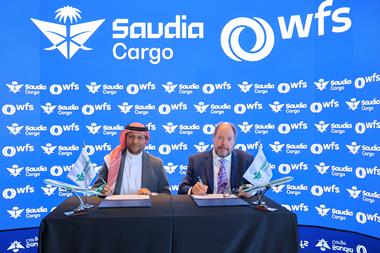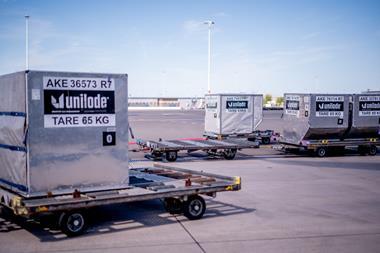Airlines based in CIS countries are looking to expand their fleets in order to capitalise on growth in the region.
At the Caspian Air Cargo Summit, speakers from Silk Way West, Sky Gate Cargo and Air Astana gave presentations on their outlook for the region.
Baku-hubbed Silk Way Group senior vice president Wolfgang Meier told the audience that it planned to increase its fleet of Boeing 747 freighters from 12 at present to 15 by the end of 2019.
It currently owns five B747-8Fs, five B747-400Fs and leases in a further two B747s.
Meanwhile, the number of destinations it flies to will increase from 37 this year to 41 next year, 45 in 2018 and 50 in 2019.
He said one of the reasons for the extra freighter capacity is the growth of e-commerce, while he added that air cargo demand in general was on the up after three years of stagnation.
Meier said that the airline could be a partner for all those involved in e-commerce logistics, by offering network partnerships on trunk routes, niche routes and emerging routes and a variety of different types of capacity – scheduled, charter and ACMI.
Speaking ahead of Meier, Silk Way Holding president Zaur Akhundov said that the airline had seen demand increase by 29% during the first eight months of this year to 220,000 tons.
He said that a total of 11 new destinations had been opened in 2016 and 2017 to destinations including Japan, Malaysia, Singapore, Bangladesh, Kuwait, and Saudi Arabia.
As well as e-commerce growth, demand over the last year has been boosted by the European Games, Islamic Solidarity Games, the Formula 1 Azerbaijan Grand Prix, pharmaceuticals, perishables and high tech goods.
The airline has also carried out a large number of flights transporting humanitarian and military cargo from the German, US, Canadian, Spanish, Italian, Israeli and French militaries, while NATO and other international organisations are amongst its customers.
Meanwhile, Sky Gates Cargo Airlines senior vice president Nidjat Babayez revealed that the carrier is also planning to increase its fleet from its current two aircraft to five or six by 2019. The exact number depends on market developments, he said.
The airline, which was launched in late 2016 and is hubbed at Moscow’s Zhukovsky International Airport, took delivery of its last aircraft in August, while another on order is due to arrive in the first quarter of 2018.
He added that the increase in fleet size would also lead to an increase in destinations from seven this year to 13-15 at the end of 2019.
While the aircraft will largely be used on scheduled operations, which will account for around 60-65% of flight hours, they will also be used for charters.
He explained that in today's markets airlines needed to be as flexible as possible.
Babayez said that the Russian market bottomed out in 2015/2016 but has rebounded with growth of around 7-8% so far this year and is expected to reach 390,000 tons in 2017, before increasing to 410,000 tons next year and 430,000 tons in 2019.
Fueling much of this growth is e-commerce demand, he said.
Meanwhile, Air Astana director of cargo sales Lesley Cripps said the airline was also preparing for growth.
The airline is adding to its fleet and in the autumn of 2018 is due to take delivery of Embraer E2 regional jets. In 2015 it placed an order for 11 A320neo aircraft, which are in the process of being delivered.
Helping fuel growth is the Khorgos Special Economic Zone located on the China-Kazakhstan border, which is a key element of China’s new silk road project.
The facility is a multimodal hub connected with rail, road, and is within three hours of Almaty airport.
She also hoped that changes to the Eurasian Customs Union of Armenia, Belarus, Kazakhstan, Kyrgzstan and Russia would help boost demand.
Cripps explained that at the moment, all transshipment cargo must be Customs prepared for the first entry point. This means companies looking to transship through the countries will need to utilize an agency, adding cost and complexity and meaning they prefer to use direct solutions.
However, Cripps said reforms to the measure had been sent to the all members, which are currently reviewing the proposals to make sure they do not conflict with local laws. It is hoped the reforms will be passed in January 2018.
Other exports from Kazakhstan include metals, machinery and foods, Cripps said.
Meanwhile, local press reports dating back to last year suggest the airline could be looking to form a freighter airline in conjunction with rail operator KTZ as the freighter sector in the country is currently only catered for by foreign carriers.










